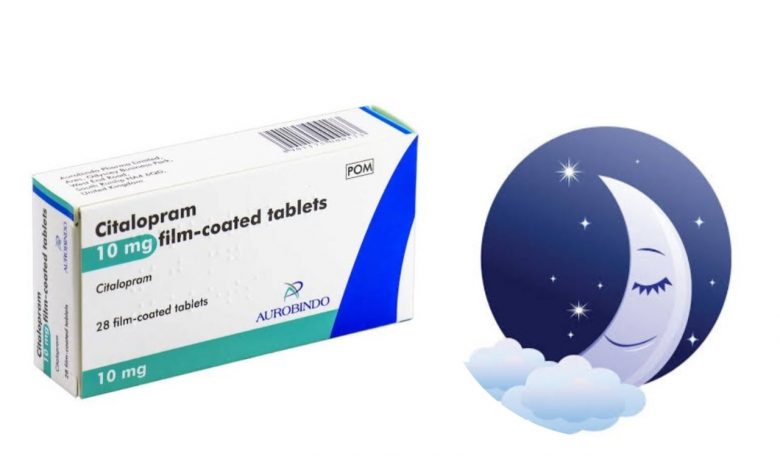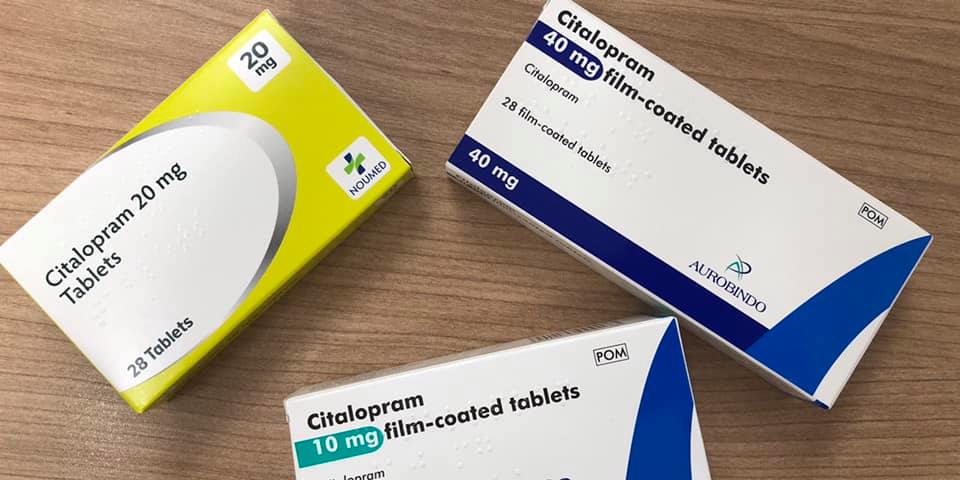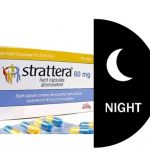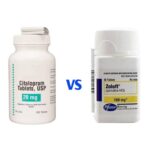5 Major Benefits Of Taking Citalopram At Night

Virtually every patient wants prescriptions to be effective. Some medications work more effectively when taken at specific times. When getting a new prescription, the pharmacist is tasked with reviewing important information with you regarding medication management. Among the things he or she may cover is when to take medication. Just like certain prescriptions should be taken with food or with a full glass of water for best results, timing also matters when it comes to taking your daily medications.
Research has shown that in some cases, it may be important to take a drug at a particular time of day. This approach, known as chronotherapy, is gaining attention as research suggests a relationship between when we take medications and how well they work.
The best time to take medication may vary depending on the drug, but if your pharmacist says to take your dose at the same time each day, it’s best that you do so.

What is citalopram?
Citalopram, more commonly known by the brand name Celexa is an antidepressant of the selective serotonin reuptake inhibitor class that is used to treat depression. Although the primary FDA-approved clinical use for citalopram is for the treatment of depression in adults, the medical is also used off-label for the treatment of the following conditions: alcohol use disorder, coronary arteriosclerosis, obsessive-compulsive disorder, panic disorder, postmenopausal flushing, and premenstrual dysphoric disorder.
How it works
As earlier stated, citalopram is part of the antidepressant drug class called selective serotonin reuptake inhibitors (SSRIs). A class of drugs is a group of medications that work in a similar way. These drugs are often used to treat similar conditions. SSRIs act in your brain to increase levels of a substance called serotonin. Having more serotonin in your brain can improve symptoms of depression.
Several studies have confirmed the effectiveness of citalopram. In clinical studies that lasted 4 to 6 weeks, depression symptoms eased more in people who took citalopram. This was compared with people who took a placebo (treatment with no active drug).
Researchers then looked at the people who took citalopram and had their depression symptoms ease to see how the drug worked long-term. These people were compared with people who took a placebo. The people in the citalopram group were less likely to have their depression come back again.
How should I take citalopram?
Citalopram comes as a tablet and a solution (liquid) to take by mouth. It is usually taken once a day, in the morning or in the evening, with or without food. Take citalopram at around the same time every day.
The typical starting dose is 20 mg by mouth once daily. The maximum recommended dose is 40 mg by mouth once daily.
Follow the directions on your prescription label carefully, and ask your doctor or pharmacist to explain any part you do not understand. Take citalopram exactly as directed and avoid alcohol. Do not also take more or less of it or take it more often than prescribed by your doctor.
Your doctor may start you on a low dose of citalopram and gradually increase your dose, not more often than once a week.
It may take 1 to 4 weeks before you notice the full benefit of citalopram. Continue to take citalopram even if you feel well. Do not stop taking citalopram without talking to your doctor. Your doctor will probably decrease your dose gradually. If you suddenly stop taking citalopram, you may experience withdrawal symptoms such as mood changes, irritability, agitation, dizziness, numbness, tingling or electric shock-like sensations in the hands or feet, anxiety, confusion, headache, tiredness, nausea, sweating, shaking, frenzied or abnormally excited mood, and difficulty falling asleep or staying asleep. Tell your doctor if you experience any of these symptoms while you are decreasing your dose of citalopram or soon after you stop taking citalopram.
5 Benefits Of Taking Citalopram At Night
Taking citalopram at night has several benefits because if taken in the daytime, some of its side effects can make it difficult to operate normally. While there are pros and cons of taking citalopram at night we shall be taking a look at the Benefits of taking citalopram at night which include:
- Better Sleep: One advantage of taking citalopram at night is better sleep. If you suffer from insomnia (a common sleep disorder that can make it hard to fall asleep), taking citalopram at night is the best time to take it because it will help you sleep better and avoid excessive dizziness or sleepiness the medication causes.
- Escape Daytime Fatigue: Daytime fatigue can have some pretty harmful effects from reduced concentration to irritability, reckless risk-taking, poor work quality, and even falling asleep behind the wheel. Fatigue is common, especially during the early weeks of citalopram treatment. Taking the medication at night will reduce the impact of these common side effects on your daily routine.
- Operating Devices: Taking citalopram during the daytime can make it difficult or almost impossible to safely operate the simplest of devices or machines. Some people cannot concentrate properly while they’re taking citalopram. It might be best to stop driving and cycling for the first few days of treatment until you know how this medicine makes you feel. It’s an offense to drive a car if your ability to drive safely is affected.
- Sexual life: One of the benefits of sex at night is that it can be a deeply relaxing and bonding experience for couples. Research has shown that mood-enhancing and health-promoting hormones and neuropeptides released during sexual activity could contribute to de-stressing and relaxing at the end of a hectic day. Peak blood levels of citalopram occur within 1 to 6 hours, with an average time of 4 hours. Taking citalopram in the daytime increases the risk of delayed ejaculation in men and decreased interest in sex. Taking the medication at night will ensure that you are asleep when the full effect of the medication manifests.
- Reduces Accident Risk: Fatigue and somnolence are common side effects of citalopram that increase the risk of falls and other domestic accidents. A full third of American adults, 69 million men and women over age 40, are up to 12 times more likely to have a serious fall due to dizziness, according to Johns Hopkins experts. Taking citalopram in the morning will ensure the drug effects and side effects peak in the afternoon and increase your risk of an accident during the daytime.
What are the other side effects of citalopram?
The more common side effects of citalopram can include:
• anxiety or feeling agitated
• appetite changes
• digestive system problems, such as nausea, vomiting, diarrhea, upset stomach, constipation
• dysmenorrhea (painful menstrual periods)
• fatigue (lack of energy) or sleepiness
• insomnia (trouble sleeping)
• muscle or joint aches
• sexual problems, such as a decreased interest in sex, ejaculation disorder, impotence (trouble getting or keeping an erection)
• sweating, including hot flashes
• tremor
• upper respiratory infection (infection in your nose or throat)
• weight gain or weight loss
Most of these side effects may go away within a few days or a couple of weeks. If they’re more severe or don’t go away, talk with your doctor or pharmacist.
Serious side effects
Serious side effects from citalopram aren’t common, but they can occur. Call your doctor right away if you have serious side effects. Call 911 if your symptoms feel life-threatening or if you think you’re having a medical emergency.
Serious side effects and their symptoms can include the following:
• Suicidal thinking and behavior.* Symptoms can include:
o thoughts of harming yourself
o worsening depression or anxiety
o feeling agitated or irritable (easily upset or frustrated)
o aggressiveness
o behaviors or feelings that aren’t normal for you
• Withdrawal symptoms when you stop using the drug. For details, see the “Celexa withdrawal” section below.
• Hyponatremia (low levels of sodium). Symptoms can include:
o headache
o brain fog
o feeling weak or unsteady
o fainting
• Mania or hypomania (racing thoughts or periods of high energy). Symptoms can include:
o increased energy
o feeling restless
o trouble sleeping
o racing thoughts
• Bleeding. Symptoms can include:
o increased bruising
o nosebleeds
o blood in urine or stool
• QT prolongation and torsades de pointes (types of heart rhythm problems). Symptoms can include:
o heart palpitations (feeling of skipped or extra heartbeats)
o dizziness
o fainting
• Serotonin syndrome (high levels of the chemical serotonin). Symptoms can include:
o sweating or fever
o tremor
o blood pressure changes
o racing heart
o feeling agitated
o dizziness
• Seizures (changes in the electrical activity of your brain). Symptoms can include:
o dizziness
o sudden movement of your arms or legs
o change in eyesight
o sudden fear or feeling anxious
Citalopram may cause other side effects. Call your doctor if you have any unusual problems while taking this medication.
If you experience a serious side effect, you or your doctor may send a report to the Food and Drug Administration’s (FDA) MedWatch Adverse Event Reporting program online (http://www.fda.gov/Safety/MedWatch) or by phone (1-800-332-1088).





